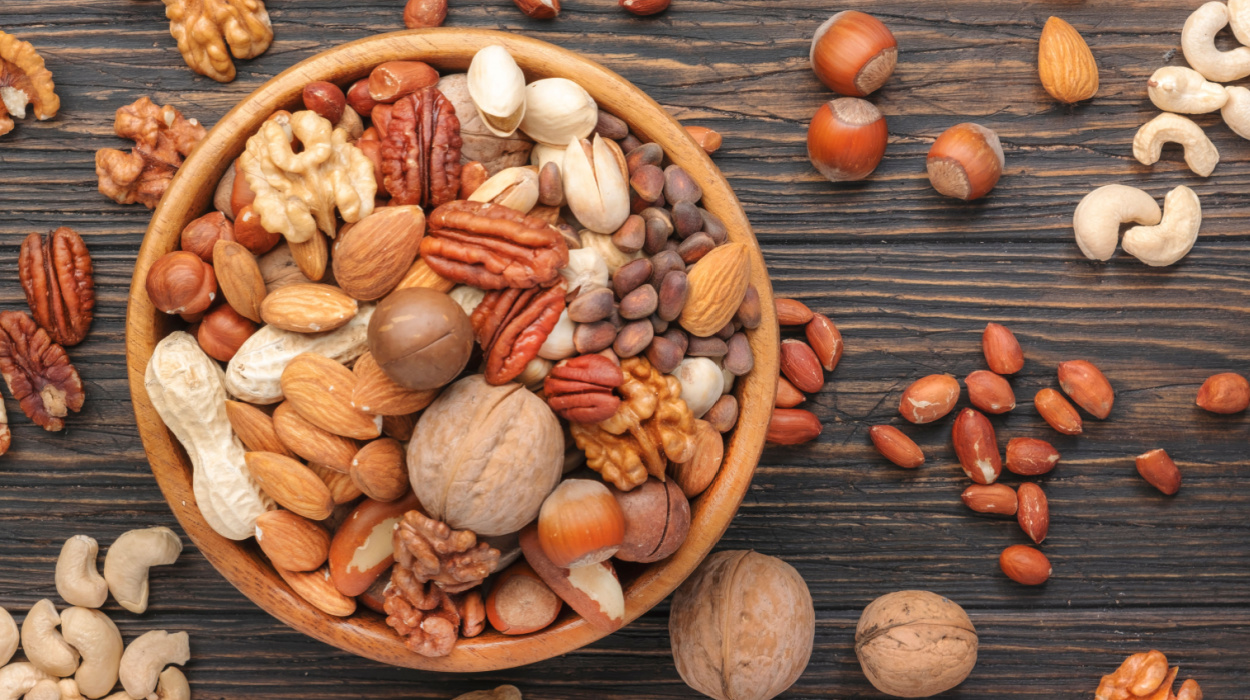 Expert's opinion
Expert's opinion
Expert's opinion
The article is a subjective view on this topic written by writers specializing in medical writing.
It may reflect on a personal journey surrounding struggles with an illness or medical condition, involve product comparisons, diet considerations, or other health-related opinions.
Although the view is entirely that of the writer, it is based on academic experiences and scientific research they have conducted; it is fact-checked by a team of degreed medical experts, and validated by sources attached to the article.
The numbers in parenthesis (1,2,3) will take you to clickable links to related scientific papers.
Keto For Women Over 60: What You Need To Know In 2024?

The ketogenic diet, commonly shortened to keto, is a high-fat/low-carb diet in which the body is forced into a metabolic state known as ketosis; without enough carbs to burn for energy, the body burns fat instead. But is the keto diet safe? This approach can offer a variety of health benefits, particularly for women over 60, however, the diet also comes with potential side effects which women over 60 should take into consideration, as well. This article will explore the benefits, as well as potential pitfalls of keto for women over 60 to consider.
Women over 60 who are contemplating the keto diet may also be interested in getting the best calorie counter app, as well as understanding the benefits of berries (a food allowed on the keto diet).
Keto Meal Plan For Women Over 60 Meal Plan
- Day One: Gourmet Keto Delights
- Day Two: Nutrient-Rich Harmony
- Day Three: Vitality Boost Day
Three-Day Sample Keto For Women Over 60
Day One: Gourmet Keto Delights (Approx. 1800 calories)
Indulge in the Gourmet Keto Delights meal plan, where culinary excellence meets the art of keto dining. Day one unveils a symphony of flavors: Scrambled eggs paired with vibrant veggies, creamy avocado, and a hint of almond butter for breakfast. Lunch brings the savoriness of Grilled Salmon, sauteed veggies, and a handful of wholesome nuts. For dinner, relish a tender Grass-Fed Steak, a crisp salad, and the comfort of Two Fried Eggs. Throughout the day, indulge in nutritious Snacks—Almonds, Raspberries, and a touch of Dark Chocolate. It’s a journey of culinary wisdom and well-being.
| Breakfast | |
| Scrambled Eggs | Two large eggs |
| Veggies | A serving |
| Avocado | Half an avocado |
| Gluten-Free Toast | One slice |
| Almond Butter | One tablespoon |
| Lunch | |
| Grilled Salmon | Four to six ounces |
| Veggies Sauteed in Olive Oil | A serving |
| Nuts | A handful |
| Dinner | |
| Grass-Fed Steak | Four to six ounces |
| Salad | A serving |
| Fried Eggs | Two large eggs |
| Snacks | |
| Almonds | One ounce |
| Raspberries | One-half cup |
| Dark Chocolate | A small piece |
Day Two: Nutrient-Rich Harmony (Approx. 1600 calories)
Discover Nutrient-Rich Harmony – a meal plan designed to synchronize taste and well-being. From a delightful breakfast of Smoked Salmon, Avocado, and Greek Yogurt with Berries to a satisfying Grilled Chicken Salad for lunch, followed by a Grilled Chicken Salad at noon. Every bite harmonizes flavors and nourishment.
| Breakfast | |
| Smoked Salmon | Two to three ounces |
| Avocado | Half an avocado |
| Greek Yogurt | One-half cup |
| Berries | One-half cup |
| Lunch | |
| Grilled Chicken | Four to six ounces |
| Lettuce | Two cups |
| Cucumber | Four to six ounces |
| Carrots | Three to four ounces |
| Bell pepper | Two to three ounces |
| Mushrooms | Two to three ounces |
| Olive Oil-Based Dressing | One to two tablespoons |
| Dinner | |
| Veggie Omelet | Two eggs |
| Peanut Butter | One tablespoon |
| Celery Sticks | Four to six celery sticks |
| Snacks | |
| Cottage Cheese | One-half cup |
| Walnuts | One ounce |
| Carrot Sticks | One-half cup |
Day Three: Vitality Boost Day (Approx. 1300 calories)
Experience a day of revitalization with our Vitality Boost Day meal plan. Every dish is carefully crafted to fuel your energy and well-being. Begin with a Chia or Basil Seed Pudding paired with a low-glycemic smoothie infused with MCT oil. For lunch, enjoy a Tuna Salad wrapped in crisp lettuce, followed by a nourishing Tofu Stir-Fry at dinner. Snack on Carrot Sticks with Hummus and a handful of Blackberries for a day of wholesome vitality.
| Breakfast | |
| Chia or Basil Seed Pudding | One half-cup |
| Berries | One half-cup |
| Low-glycemic Smoothie with MCT oil | Eight ounces |
| Lunch | |
| Canned Tuna | Four ounces |
| Veggie | One to two cup |
| Lettuce Leaves (for wrapping) | Four large leaves |
| Dinner | |
| Tofu Stir-Fry | One cup |
| Mixed Vegetables | One and a half cups |
| Brown Rice | Half a cup |
| Snacks | |
| Carrot Sticks | Half a cup |
| Hummus | Two tablespoons |
| Blackberries | Half a cup |
Keto Diet For Women Over 60: Five Important Principles
The keto diet has gained popularity in recent years for its effects on hormone balance and weight loss, even though it has been around since the 1920s (originally used as a treatment for epilepsy).[1] Though there are many versions of the keto diet, the fundamental principles are to keep fat intake high (roughly 70% of daily calories) while keeping carbohydrates low (around 10% of daily calories). Protein takes up about 20% of the diet. These ratios can be adjusted slightly depending on the person, and the sources of the macronutrients (fat, carbs, protein) can vary as well. However, it’s best not to do dirty keto, accounting for macros only while ignoring the quality of the food, and instead, focus on whole, unprocessed foods when choosing where your macros come from.
Metabolism
The purpose of the keto diet is to change the way the body metabolizes food, or energy, which can improve various aspects of health for certain individuals, including helping them lose weight. It is important, especially for women over 60, to train the body to metabolize different sources of fuel to thrive, since the aging process can make metabolism slow down.
Your Required Daily Calories
Keeping track of calorie intake is an important aspect of the keto diet for women over 60. There’s no getting around it, if you decide to try keto, you’ll need to be on top of your calorie intake and macros, especially if losing weight is your goal. Carbs will need to be limited to 20-50 grams per day, or roughly 10% of your diet. Conversely, fat should make up 70% of the diet. Using a 2000-calorie per day diet as an example, this would come out to 165 grams of fat a day, 40 grams of carbs a day, and protein coming somewhere in between at roughly 75 grams a day.
High-Fat/Low-Carb
Women over 60 must follow the same principles of the keto diet as anyone else: high-fat/low-carb (the low-carb aspect is similar to the Atkins diet). While the exact ratios of fat to carbs can be tailored a bit, the diet won’t work effectively if the macro breakdowns are not upheld. The body will need to switch to ketosis, burning fat for fuel rather than carbs, in order for the diet to be successful.
Monitor Electrolyte Balance
Electrolytes are essential to health in a number of ways – most notably, they make sure we stay hydrated. However, the keto diet has the potential to throw electrolytes off balance, deplete minerals, and dehydrate us. This aspect of the keto diet is a potential pitfall to watch out for and monitor with a doctor as you proceed on the diet.
Maximize Protein
Muscles are heavily dependent on protein, and we tend to lose muscle mass as we age. Therefore, women over 60 should be especially mindful of ensuring they get enough protein,[2] and are not solely fixated on the two extremes (high-fat and low-carb). Almost all sources of protein, plant-based or animal-based, are encouraged on a keto diet.
Health Benefits Of Keto Diet For Women Over 60

Improved Living
It’s not uncommon to associate a lesser quality of life with aging, but it doesn’t have to be that way. It is true that as we age, things slow down, and our minds and bodies may not function as sharply as they once did. But the keto diet, especially a whole foods-based one, offers the potential to have more energy, focus, and resilience throughout the years.
Lower Health Risks
The keto diet can be particularly helpful in lowering inflammation[3] which is the root of many age-related health conditions. Whether physical conditions like arthritis and heart disease or mental impairments such as Alzheimer’s Disease, inflammation plays a part. In reducing inflammation, the keto diet offers lower risks of developing a range of medical conditions as we age.
Weight Management
As we age, our metabolism tends to slow down, especially past the age of 60. This is especially true for women, due to their unique hormonal makeup, which changes with age. This can cause women to put on more weight and have trouble with weight loss. Keto’s reduction of carbs combined with healthy fats (which are great for hormone balance and satiety) work to provide sustainable weight management.
Better Insulin Sensitivity
Being sensitive to insulin is a good thing! Our pancreas produces insulin each time we eat carbs (which eventually break down into glucose) and insulin’s job is to move the glucose into our cells for energy. However, when we eat too many carbs, over time, we overproduce insulin and we can become desensitized to it, which can lead to high amounts of sugar in our blood and diabetes.
The keto diet minimizes carb intake and increases fat, which helps steady blood sugar levels. This process can help our bodies become more sensitive to insulin, protecting against type-2 diabetes.
More Energy
By stabilizing blood sugar levels, the keto diet also helps improve energy. If you’ve ever felt a sugar crash, you’ll understand that when our blood sugar is unstable (either because we haven’t eaten enough, or because we ate too much sugar which led to a spike followed by a crash), we feel more tired. A keto diet can help blood sugar control and keep energy levels more consistent throughout the day.
Cognitive Function
The reduction of inflammation is key in helping maintain good cognitive function. In addition to reducing inflammation, the keto diet allows the body to use ketones as a source of fuel[4] for the brain. Ketones offer stable energy for the brain, as well as protective properties,[3] which cumulatively can help reduce the risk for cognitive decline and impairment that is associated with aging.
Metabolic Flexibility
The keto diet’s main purpose is to help the body switch from using carbs for fuel to using stored fat instead. By doing this, the body becomes more agile, or metabolically flexible, able to toggle back and forth between different energy sources as needed. Since women over 60 may need more assistance metabolizing energy, it is great to train the body to be more flexible and pull from other sources.
Potential Side Effects Of The Keto Diet
While the keto diet offers many health benefits, it’s important for women over 60 to also be mindful of the potential side effects. Some common side effects of the keto diet are:
- Kidney stones
- Nutritional deficiencies
- Constipation
- Dehydration
- Low blood sugar
- Weight gain due to binging (the diet is very restrictive)
- Keto flu
List Of Foods You Can Eat Or Avoid On Keto Diet
Foods That Are Allowed On Keto Diet

Are tomatoes good for you? Judge for yourself. Not only are they healthy, but they’re one of many foods encouraged on the keto diet and can help with weight loss.
- Some Fruits: Low glycemic fruits such as raspberries, blackberries, and blueberries.
- Veggies: All non-starchy vegetables are good, including tomatoes, cucumbers, broccoli, cabbage, asparagus, radishes, mushrooms, leafy greens, celery, etc.
- Herbs and spices: Basil, salt, pepper, garlic, onions, cumin, parsley, cilantro, sage, thyme, tarragon, turmeric, ginger, fennel, cinnamon, nutmeg, rosemary, etc.
- Healthy fats: Nuts, seeds, avocado, fatty fish, olives and olive oil, MCT oil.
- Protein from animals (meat, fish, eggs) or plants (tofu).
- Dairy (if tolerated and unsweetened).
Foods You Should Avoid On Keto Diet
- Pizza, conventional baked goods such as muffins, cookies, pastries, etc.
- Bread and bread products, such as bagels, crackers, cereals, etc.
- Sugar and all forms of sugar (honey, agave, maple syrup, etc.).
- Most grains (rice, buckwheat, oats, quinoa, rye, etc.).
- Starchy vegetables, such as potatoes and squash.
Conclusion
The keto diet is a high-fat/low-carb diet, somewhat similar to other low-carb diets such as the Atkins diet, which puts the body into a state of ketosis, burning fat for energy, rather than carbs. This eating approach comes with many possible health advantages, particularly for women over 60, not just due to their age, but their gender, as well. From better cognition to hormone balance to more energy and muscle mass, the keto diet may be worth exploring for women in their 60s, under the supervision of a qualified medical professional.
+ 4 sources
Health Canal avoids using tertiary references. We have strict sourcing guidelines and rely on peer-reviewed studies, academic researches from medical associations and institutions. To ensure the accuracy of articles in Health Canal, you can read more about the editorial process here
- Wheless, J.W. (2008). History of the ketogenic diet. Epilepsia, [online] 49, pp.3–5. doi:https://doi.org/10.1111/j.1528-1167.2008.01821.x
- Deer, R. and Volpi, E. (2015). Protein intake and muscle function in older adults. Current Opinion in Clinical Nutrition and Metabolic Care, [online] 18(3), pp.248–253. doi:https://doi.org/10.1097/mco.0000000000000162.
- Koh, S., Dupuis, N. and Stéphane Auvin (2020). Ketogenic diet and Neuroinflammation. Epilepsy Research, [online] 167, pp.106454–106454. doi:https://doi.org/10.1016/j.eplepsyres.2020.106454.
- Barry, D., Ellul, S., Watters, L., Lee, D., Haluska, R. and White, R. (2018). The ketogenic diet in disease and development. International Journal of Developmental Neuroscience, [online] 68(1), pp.53–58. doi:https://doi.org/10.1016/j.ijdevneu.2018.04.005.



